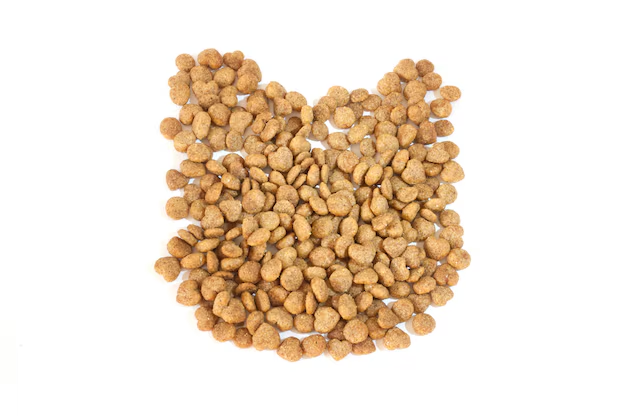Can You Use Food Stamps to Buy Pet Food? Everything You Need to Know
Navigating the ins and outs of what's eligible for purchase with food stamps can be tricky, especially when it comes to providing for your furry friends. Pets are often considered beloved family members, and it's only natural to want to ensure they have the food and nutrition they need. But can food stamps, officially known as the Supplemental Nutrition Assistance Program (SNAP), be used to buy pet food? Let's delve into this important topic and explore your options.
Understanding SNAP and Its Purpose
Before addressing whether pet food can be purchased with SNAP benefits, it's essential to understand the program's primary objectives. SNAP is designed to assist low-income individuals and families in purchasing food to maintain a healthy diet. The program aims to alleviate food insecurity and improve nutritional outcomes for those in need. Benefits are distributed through an Electronic Benefit Transfer (EBT) card, which can be used to buy eligible food items.
What SNAP Does Cover
SNAP covers several categories of food products, such as:
- Fruits and vegetables
- Meat, poultry, and fish
- Dairy products
- Breads and cereals
- Non-alcoholic beverages
- Seeds and plants that produce food
These items are specifically chosen to encourage a balanced and nutritious diet, directly impacting the recipient's health and well-being.
Can Pet Food Be Purchased with SNAP?
Based on SNAP's guidelines, pet food is not eligible for purchase with food stamps. The program is strictly intended for human consumption and does not extend to items like pet supplies, toiletries, or household products. This limitation can be challenging for pet owners who rely on assistance to make ends meet.
In response to this, many people seek alternative solutions to ensure their pets are fed and cared for properly, without the use of SNAP benefits.
Exploring Alternatives and Solutions
Given the restriction that food stamps do not cover pet food, it's important to consider alternative options if you're a SNAP recipient with pets. Here are some ideas to help you:
Local Food Pantries and Animal Shelters
Pet food banks: Some local food pantries and animal shelters offer pet food distribution programs. These programs aim to support pet owners in need by providing free or low-cost pet food.
Community events: Attend community pet food drives or local events where pet food and supplies are distributed.
Charitable Organizations
Many non-profit organizations and charities focus specifically on pet welfare and helping owners maintain their pets despite financial difficulties. These organizations might offer pet food assistance, covering the gap left by SNAP.
Social Media and Local Communities
Reach out to local social media groups, online forums, and community boards. Community members often share information about available resources and might even offer direct assistance.
Consider Homemade Pet Food
For those interested in exploring alternative feeding options:
- Homemade diets: Many pet owners opt for homemade pet diets. Ensure that any homemade pet food provides balanced nutrition by consulting with a veterinarian or referring to reliable resources that outline proper dietary needs for pets.
How to Manage Pet Expenses on a Tight Budget
When SNAP doesn't cover pet food and resources are limited, managing pet expenses can be challenging. Here are some tips to help you find balance:
Prioritize Pet Health
Regular check-ups and preventive care can prevent costly treatments down the line. Look for low-cost veterinary clinics or mobile vet services in your area.
Use Coupons and Loyalty Programs
Many pet food brands offer coupons, discounts, and loyalty programs. Utilize these offers to reduce costs when purchasing pet supplies.
Buy in Bulk
Purchasing pet food in bulk can often lead to significant savings. Be sure to check for expiration dates and storage requirements to prevent waste.
Plan for Emergencies
Set aside a small fund for unexpected pet-related expenses whenever possible. Regularly contribute to this fund, no matter how small, to alleviate stress when unplanned situations arise.
Summary of Steps for Pet Owners on SNAP
Here's a quick summary of practical tips to help ensure your pets are well-cared for without using SNAP benefits:
- 🐕 Explore local resources: Look for pet food banks and community events offering pet supplies.
- 🐾 Contact charities: Reach out to organizations assisting with pet care and welfare.
- 🗨️ Engage with communities: Use local and online communities to find support and resources.
- 🍲 Consider homemade options: Research homemade pet food while ensuring nutritional balance.
- 💡 Apply cost-saving strategies: Use coupons, buy in bulk, and participate in loyalty programs.
Final Insights
While SNAP benefits cannot be used to purchase pet food, understanding the program's intent and exploring alternative resources can help pet owners manage their responsibilities. By leveraging community resources, charitable assistance, and thoughtful planning, it's possible to care for your pets effectively, even on a tight budget. Remember, it's all about finding the right balance and creatively using available resources to ensure your furry friends remain healthy and happy.

Related Topics
- Am I Eligible For Food Stamps
- Are Food Stamps Being Cut
- Are Food Stamps Federal Or State
- Are Food Stamps Frozen
- Are Food Stamps Funded By Taxpayers
- Are Food Stamps Going Away
- Are Food Stamps Income Limits
- Are Food Stamps Paused
- Are Illegal Aliens Eligible For Food Stamps
- Are Illegal Immigrants Eligible For Food Stamps
